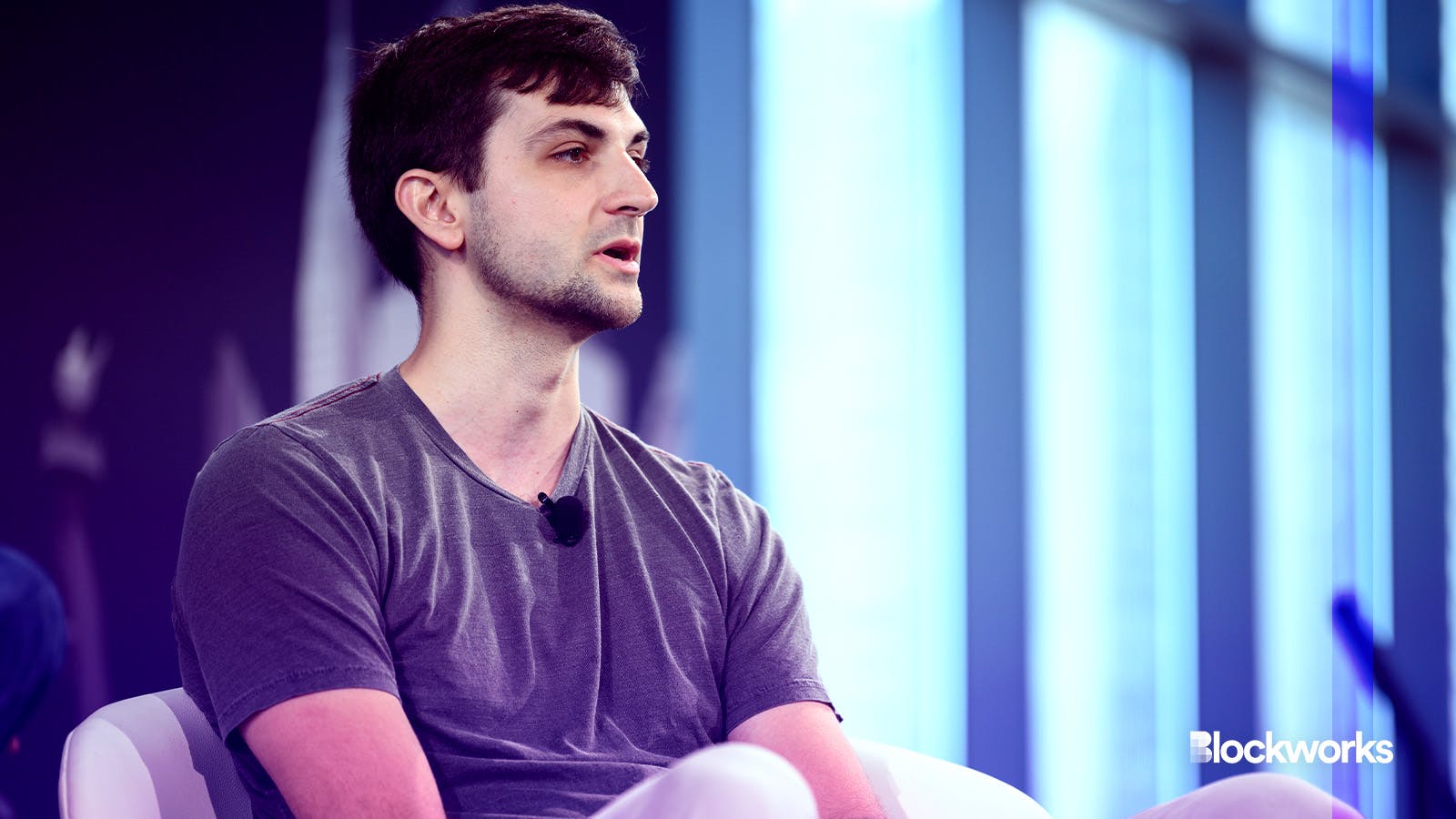The 3 biggest DeFi innovations of 2023
As technology improves, we take a look at some of the achievements made in DeFi innovation this year

DYdX founder Antonio Juliano | DAS 2022 New York by Blockworks
Decentralized finance has seen some significant improvements over the past year.
Here are some of the major milestones the DeFi space has seen since the start of 2023.
1. Cross-chain communication for more interoperable blockchains
Cross-chain communication protocols seek to enable different blockchains to communicate with each other. They are designed so that data and value can be connected between separate systems, enabling tokens or assets to be transferred between separate networks.
This type of technology allows decentralized exchanges to tap into more liquidity pools and give applications access to technological functionality across other blockchains.
Squid, a cross-chain liquidity routing and swap protocol, for example, has enabled one-click swaps between EVM-compatible chains and Cosmos app chains. This means that users can swap tokens using one click between various decentralized exchanges on different blockchains, like Uniswap and Osmosis.
Read more: Squid enables one-click cross-chain swaps on Cosmos
2. Smart accounts through ERC-4337
ERC-4337 account abstraction is a standard to make crypto accounts more flexible. There are two types of accounts on Ethereum: externally owned accounts (EOA) and contract accounts.
EOAs are described as accounts with a public and private key that hold user funds. To receive funds from another user, a public address must be given, but to access funds that have been transferred, one can only rely on a private key.
On the other hand, contract accounts through ERC-4337 enable users to manage their wallets without having to possess their own private keys, and does not require users to hold Ethereum in order to make transactions.
Read more: What are smart contract wallets? A beginner’s guide
Currently, much of smart contract wallet functionality has been focused on account recovery.
However, account abstraction can also enable digital identification verification, which enables functions like anonymous voting and fraud verification.
3. Improvements to decentralized derivative exchanges
Decentralized derivatives aim to offer a more transparent way to trade. By removing intermediaries, traders no longer need to manage their assets and keys through a third-party custodian.
Derivatives generally enable traders to derive value from crypto assets by speculating on their price rather than requiring them to actually own the asset itself.
The launch of dYdX v4 this year introduced a fully decentralized order book and matching engine, meaning that no central intermediaries would be operating the network and all network fees generated by the DEX would be redistributed to stakers.
Get the news in your inbox. Explore Blockworks newsletters:
- The Breakdown: Decoding crypto and the markets. Daily.
- Empire: Crypto news and analysis to start your day.
- Forward Guidance: The intersection of crypto, macro and policy.
- 0xResearch: Alpha directly in your inbox.
- Lightspeed: All things Solana.
- The Drop: Apps, games, memes and more.
- Supply Shock: Bitcoin, bitcoin, bitcoin.






